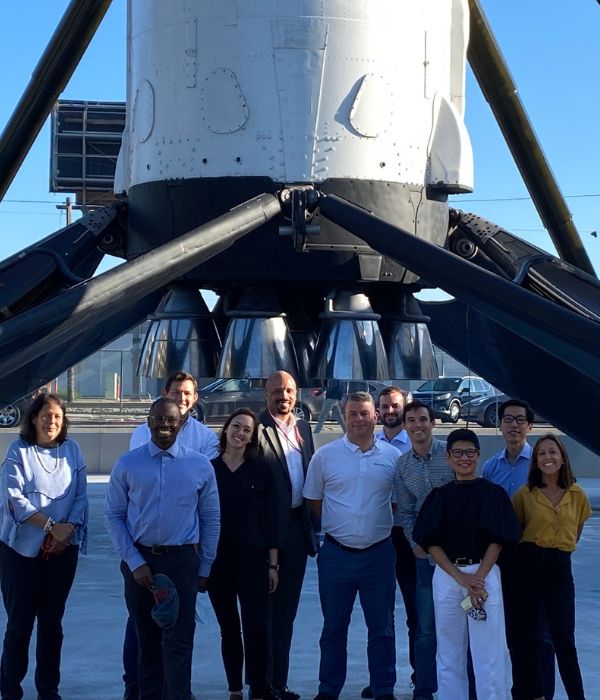With Morningbird Space’s ASCENT technology, we’re transforming how structures are built in space. Our autonomous construction systems are designed to tackle the unique challenges of extraterrestrial building, making it faster, safer, and more efficient.
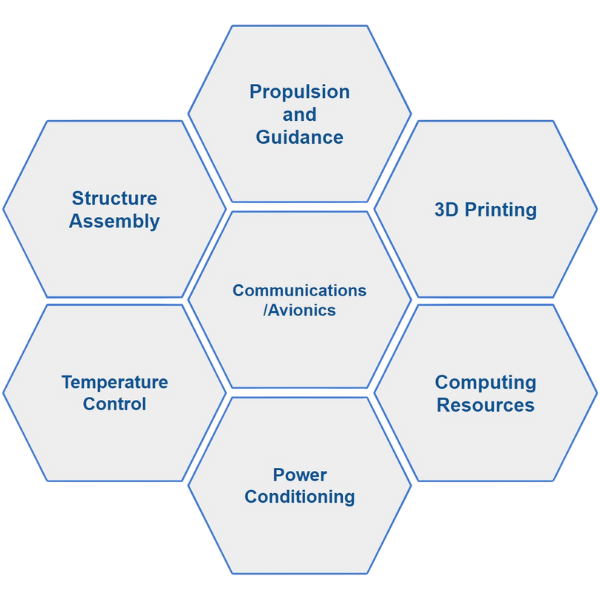
Space construction faces immense challenges—from hostile environments to the logistical nightmare of transporting materials. Enter Advanced Space Construction using Enhanced Networked Technology (ASCENT) by Morningbird Space: an innovative solution that leverages autonomous drones and advanced 3D printing technology. Imagine constructing habitats on the Moon or Mars without the need for human presence. ASCENT makes this possible, reducing risks and costs while increasing the speed and scope of construction projects beyond Earth.
Unlock the potential of space with our groundbreaking construction technology.
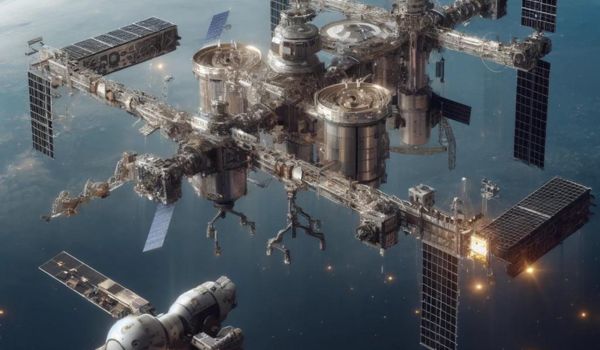
Our autonomous systems minimize human exposure to the hazardous conditions of space, ensuring safety while maximizing construction efficiency.
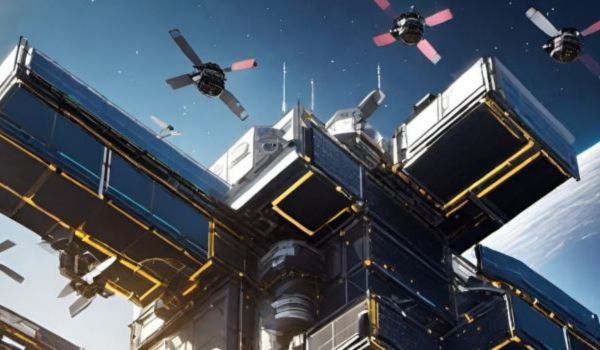
Accelerate the timeline of space construction projects with our fast-operating drones that work tirelessly to meet your deadlines.
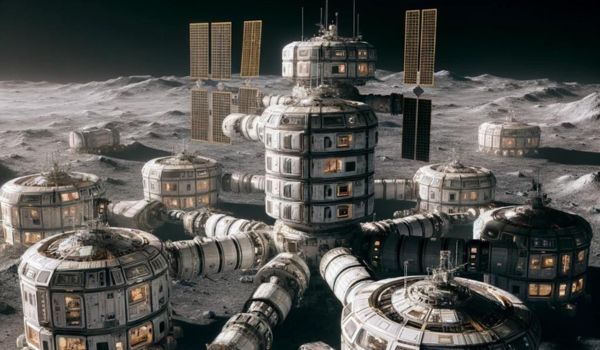
From small outposts to large colonies, ASCENT is designed to scale with your project’s needs, supporting a variety of construction forms and complexities.
Step into the future of space exploration with Morningbird Space, where our cutting-edge propulsion technologies are setting new standards in the industry. Our advanced propulsion systems are not only designed to enhance the efficiency and scope of space missions but also to revolutionize the way we think about interplanetary and deep space travel. From reducing travel times drastically to cutting operational costs and enhancing the capabilities of spacecraft for deep space missions, our technologies ensure that space exploration becomes more feasible, faster, and far-reaching than ever before. Embrace the next generation of space technology with systems that are robust, reliable, and ready to meet the challenges of the new space era.
Our drones operate in swarms for rapid construction and are capable of adapting to various tasks and environments without direct human oversight.
Utilize local resources with our 3D printers that can handle multiple materials, making construction adaptable and resource-efficient.
Advanced sensors and AI allow for real-time adjustments during construction, ensuring quality and precision on every project.
By promoting in-space construction and resource utilization, ASCENT will contribute to sustainable space activities, reducing the environmental impact of Earth-based launches.
ASCENT will facilitate the construction of habitats, support structures, and in-orbit infrastructure, supporting ambitious lunar, Lagrange point, Martian, and deep space exploration mission.
ASCENT will unlock new commercial opportunities, including space tourism, satellite infrastructure deployment, and resource utilization from celestial bodies.
This project serves as a catalyst for space research and education, engaging universities, research institutions, and students in hands-on space construction experiments.
ASCENT will foster economic growth by creating jobs, stimulating innovation, and attracting investments in the space industry.
Morningbird Space collaborates with esteemed organizations to advance the frontiers of space technology and education, reinforcing our commitment to pioneering innovation.

Developing advanced space propulsion systems with a grant from the National Science Foundation.

Partnered with AAMU-RISE Foundation to advance research capabilities and educational initiatives through shared facilities, materials, equipment, and technical expertise.

Developed materials and processes for advanced additive manufacturing with contracts from NASA
Have questions about our groundbreaking autonomous construction technology, ASCENT? Here are answers to some frequently asked questions to help you understand how we’re pioneering construction in space.
ASCENT stands for Advanced Space Construction using Enhanced Networked Technology. It’s an innovative system developed by Morningbird Space that utilizes autonomous drones and advanced 3D printing technology to build structures in space autonomously. This technology is designed to operate in the harsh environments of space, enabling the construction of habitats, infrastructure, and other structures on celestial bodies like the Moon and Mars.
ASCENT dramatically reduces the risks and costs associated with human construction in space. By using autonomous drones, we can build necessary structures before human arrival, making early stages of colonization safer and more feasible. It also allows for the rapid construction of infrastructure, which is crucial for the long-term sustainability of space missions.
Yes, safety is a primary focus in the design and operation of ASCENT. The technology is built to operate under the rigorous conditions of space and is tested extensively on Earth before deployment. Autonomous systems reduce human exposure to dangerous construction environments, enhancing overall mission safety.
While ASCENT is specifically designed for space environments, the technologies developed, such as autonomous robotics and advanced 3D printing, have potential applications on Earth. These could be used in remote or hazardous areas where traditional construction would be difficult or dangerous.
ASCENT is equipped with a multi-material 3D printer that can process various materials, including those sourced from extraterrestrial environments. This versatility allows for the use of in-situ resources, reducing the need for materials to be transported from Earth and thus lowering the cost and complexity of space construction.
The future goals for ASCENT include expanding its capabilities to handle more complex construction tasks, increasing its autonomy, and enhancing its efficiency. Long-term, we aim to establish ASCENT as a key technology for building the infrastructure needed for sustainable human presence on other planets.
